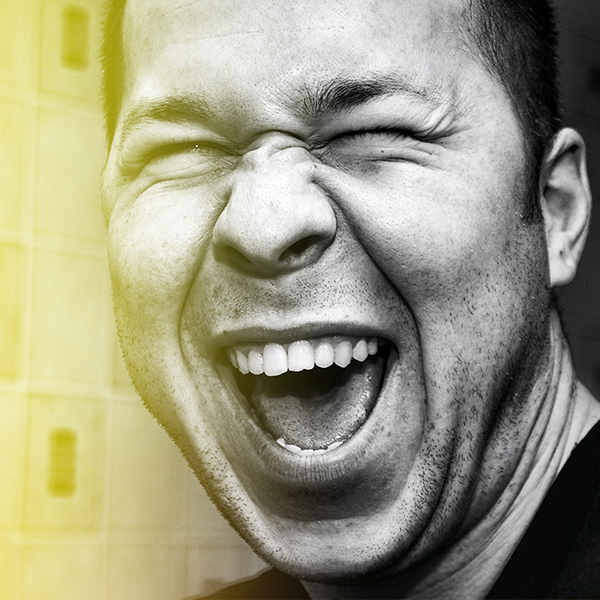Feeling Invisible at Work: Why Some Professionals Don’t Get Noticed

Have you ever delivered great results, yet your efforts felt like a whisper in a crowded room?
That humbling, unsettling moment is what feeling invisible at work is really like – when your dedication doesn’t translate into recognition or respect.
For high performers who consistently hit targets, being overlooked chips away at confidence, energy, and sense of belonging. Because, at the end of the day, you deserve to be seen, not just for what you do, but for who you are. Value isn’t just created through results; it’s reinforced when others see and understand the impact you make.
At The Happy Mondays Co., we understand what feeling invisible at work does to high performers. It ultimately dims your spirit and leaves you questioning your worth.
More often than not, this kind of invisibility isn’t a reflection of your efforts but a sign that others aren’t seeing beyond the output. And over time, that frustration builds until you feel sidelined or even replaced by someone less capable.
You’re not alone and it isn’t a sign of weakness. It’s a signal that something needs to change.
Why Visibility Matters (Beyond Just Results)
It’s a myth that great results alone guarantee recognition. In workplaces, especially in Singapore, visibility trips on perception, communication, and influence.
Recent data shows that only 16% of employees in Singapore are fully engaged at work, meaning 84% feel overlooked, uninspired, or unheard.
Meanwhile, the Ministry of Manpower and Tripartite Alliance initiatives highlight how mental wellbeing and inclusion are intrinsically linked to feeling valued, and visible, at work.
Working tirelessly without communicating your impact can lead to burnout and broken morale if nobody ever connects your effort to change.
But visibility isn't just about getting noticed. It’s what puts you in the room where decisions are made, opportunities arise, and real impact happens.
Common Signs You Are Not Valued at Work
It’s not always easy to admit when we’re being undervalued. But the signs are often there. They are typically subtle at first, then hard to ignore.
If you’ve ever questioned your place or felt sidelined despite your efforts, these may be the quiet cues that you're not being seen the way you deserve.
- Ideas ignored in meetings: your suggestions get sidelined or passed over.
- Skipped for strategic discussions: you’re left out of key decisions.
- Late or no praise: recognition doesn’t come until it reaches other ears.
- Wins uncredited: either not acknowledged, or celebrated by someone else.
- Assumed, not asked: people make guesses about your limits, rather than inviting your input.
These aren’t just annoyances but are actually silent career blockers. Over time, they compound into feelings of frustration, self-doubt and disengagement.
What Causes You to Be Overlooked
Feeling invisible at work isn’t always about a lack of skill or effort. Often, it’s a mix of internal habits and external dynamics that quietly dim your visibility. Understanding these root causes is the first step toward changing the narrative.
Internal Factors
- Discomfort with self-promotion.
- Burnout or perfectionism silencing your voice.
- Assuming “[work] speaks for itself” isn’t always enough.
External Factors
- Company cultures that quieten individuality.
- Management blind spots or bias.
- Lack of formal channels for advocacy or recognition.
These factors can lead to stress, disengagement, or even mental health concerns.
Singapore’s Workplace Fairness Legislation, including the forthcoming Well-being Champions initiative and mental health protections, help employers create inclusive environments, but they can only do so if employees speak up.

Building Influence and Advocating for Yourself
Here’s how to come out of the shadows:
- Spotlight your outcomes: “Because of this, we achieved that, thus impacting that.”
- Invite advocates: Identify people who can help amplify your work, and share achievements with them.
- Speak up deliberately: Prepare a concise insight or observation for your next meeting.
- Manage up: Regularly share your progress with your manager in a clear, impact-focused format.
These small steps, when practised consistently, shift you from silent executor to visible influencer.
How Coaching Can Help Break the Cycle of Invisibility
Performance Coaching, like the one offered by The Happy Mondays Co., builds influence one step at a time, especially if you're feeling invisible at work:
- Mindset shifting: Learn to view self-advocacy as confidence – something positive – not arrogance.
- Skill-building: Get practical training in delivering “impact statements”, strategic presence and communication.
- Action planning: Co-create a personalised visibility roadmap, like what to communicate, when, and to whom.
- Ongoing accountability: Track progress, tweak your approach, and embed new habits that make you consistently seen.
For overlooked high‑performers, coaching is the bridge between “being effective” and “being experienced.”
Conclusion: You Deserve to Be Seen
Feeling invisible at work isn’t a personal failure, but rather a red flag signaling to you that action is needed. You deserve to be seen, valued and championed.
And while the path forward may feel daunting, it’s built one visibility step at a time. With awareness, simple yet intentional action, and the right support, you can rewrite your career narrative.
If you’re ready to move from unseen to undeniably influential, explore our Performance Coaching services at The Happy Mondays Co. The spotlight is waiting for you.




















